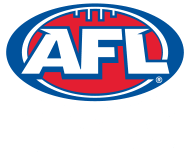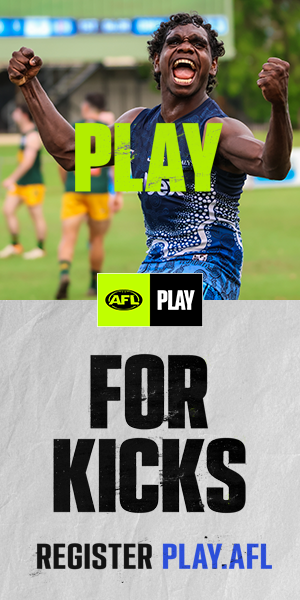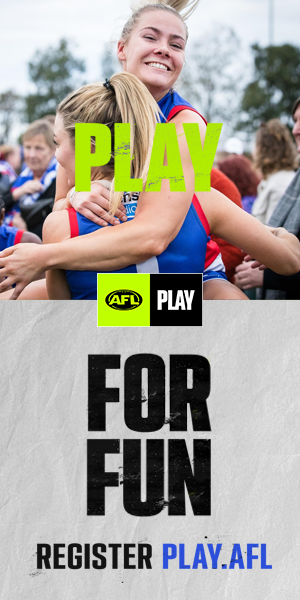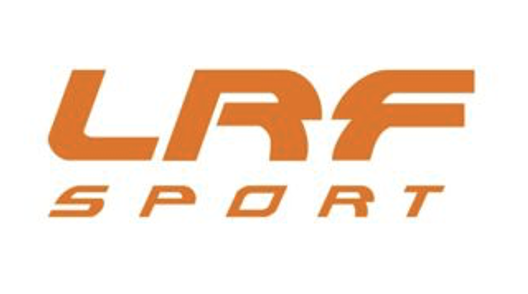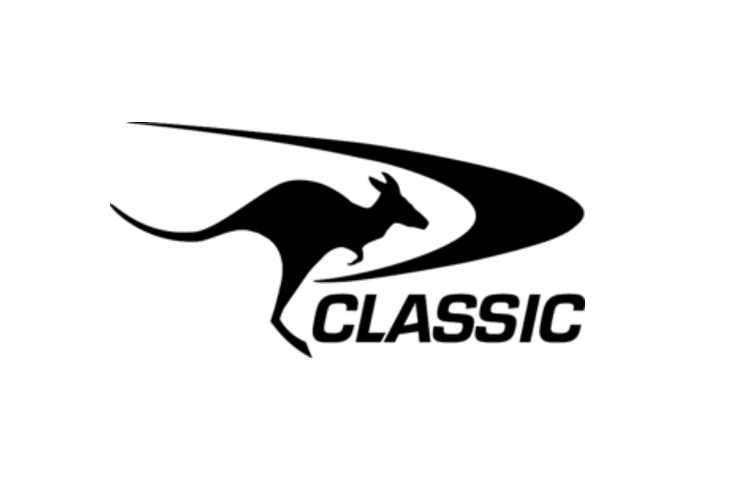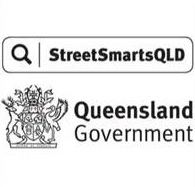One of the great features of AFL football is the father/son rule, whereby family tradition is passed from generation to generation. Like the Abletts, Watsons, Clokes, Kennedys and Murphys. The Hawkins, Liberatores, Mitchells, Vineys and Danihers. And while it wasn’t quite that for Brad Miller the sentimentality is the same. And he’s forever grateful and rightfully proud.
Neville ‘Nifty’ Miller played 28 games for South Melbourne in the 1970s under AFL Team of the Century coach Norm Smith. His captain was the legendary Bob Skilton, and among his teammates were Swans greats Peter Bedford, David McLeish, Ricky Quade and John Rantall. He was player #976.
Football was in the Miller blood. It travelled with the crusty old 187cm forward from South Melbourne to West Adelaide and Sandy Bay, and finally to Mt.Gravatt, when Miller Snr, a bricklayer, moved to Brisbane to work on the swimming complex at Chandler.
As a coach, ‘Nifty’ has long been part of the Queensland Talent Pathway, and has been associated with countless dozens of young Queenslanders in the pursuit of their AFL dream. But his proudest moment is now. To see his son Brad join the Queensland Football Hall of Fame.
For a long time, Brad was going to be a rugby league player. Only small at the time, he played halfback with the Redland Parrakeets from Under-7s to Under-12s. He played against a young Sunnybank lad who wore a helmet and was ‘an absolute gun’. Johnathan Thurston. Not really knowing what he was doing but keen to help, Neville was the coach.
Not until he was 12 did Miller Jnr turn to AFL. He played one season at Redlands Sharks before switching to Mt.Gravatt, where there was a pathway to senior football at the time. Six years later, after a major growth spirt and two years in the Queensland Under 18 side, he was in the AFL. He played under Nick Riewoldt in the 2000 Scorpions and captained the side in 2001.
Ahead of the draft, Geelong and West Coast showed genuine interest, and Brisbane interviewed him as a prospective rookie. Then, two weeks before the draft, Melbourne football boss Danny Corcoran and recruiting chief Craig Cameron flew to Brisbane and met with Brad in the Miller family home.
“I just wanted an opportunity – I didn’t care where I went,” said Miller, subsequently drafted by Melbourne with pick #55 after Luke Hodge, Luke Ball and Chris Judd headed what became known as the 2001 AFL ‘Super Draft’. David Hale, who went to North Melbourne at #7, was the only other Queenslander.
He debuted in Round 8 2002 under Neale Daniher against Fremantle at Subiaco, becoming the sixth of what is now 12 Queensland football products whose father had also played at the elite level. He followed Brett Grimley, Matthew Kennedy, Steven Lawrence, Marc Woolnough and Shane Morrison, and preceded Andrew Raines, Marcus Allan, Jordon Bourke, Tom Fields, Bailey Scott and Will Ashcroft.
Miller played 133 games with the Demons from 2002-2010 highlighted by four finals in 2004-05-06. After starting out in #37 he wore the famous #7 that is now the property of Jack Viney, was worn by Brownlow Medallist Brian Wilson from 1982-90, and by Queenslanders Ray Smith (1975-76) and Barry Denny (1977-79).
“I was just a battler. I had to work my butt off just to get drafted. I played a few different roles … did OK at times… was on the verge of getting the arse a few times … but I loved every minute of it,” said the 194cm powerhouse in a ludicrous understatement of a career that was much more, on and off the field, especially noteworthy for his performance in big games.
Always loved by his teammates, he finished at Melbourne in excellent fashion in 2010 despite playing only six AFL games. He was the leading goal-kicker and won the B&F with Casey, who were the Demons VFL affiliate. Already, he had taken the first cautious steps down the coaching pathway.
“I discovered a real hunger for coaching, and it became less about me and more about who I could help in the VFL team. It was about developing leadership and teaching young blokes,” he recalled.
He famously knocked back a farewell game with the Demons to focus on a finals campaign at Casey, prompting then Melbourne coach Dean Bailey to say: “He’s always been a team-first, club-first player. I take my hat off to him. I don’t think too many would look at it in that light.”
Miller had already had his share of farewells. In 2008 he played in the last game of Demons legends Adem Yze and Jeff White, and in 2009 he did likewise with Russell Robertson.
But he never lost the hunger to compete. And when second-year Richmond coach Damien Hardwick offered him a chance at the end of his time at Melbourne he jumped at it. “I still felt physically I had a bit to offer and it gave me a further opportunity to put the coaching wheels in motion.” But 24 games with the Tigers from 2011-12 to take his career tally to 157 was enough. He retired.
By chance his 150th was Richmond v Melbourne at the MCG in Round 3 2012. He kicked three goals in a 59-point Tigers win as he became the 17th of what is now 29 Queenslanders to play 150 games – two weeks after Hale had reached the same mark.
He had a year off football working in a sales role with a finance/investment company. It was going to be two but working solo in a Melbourne office for an Adelaide-based company wasn’t the sort of team environment he knew and loved. “It wasn’t for me,” he said.
A phone call from newly-appointed Melbourne coach Paul Roos and Miller was back where it had all begun. After two years as a Demons development coach, he joined the GWS Giants, coaching the NEAFL side to two extremes in 2016-17 – a flag followed by a wooden-spoon – in an environment governed so heavily by what happens at senior level. A near-full list followed by mass injuries. “That period including the extasy of a flag in 16’ and then being decimated in 17’ taught me so much about the game” Miller said.
He took over as forwards coach in 2018 and was a key figure as the Giants went all the way to the grand final in 2019. In 2020, when Covid hit, he did it tough. Wasn’t a big fan of the AFL hubs. So, with a young baby on board and a working wife, he stepped away. It was less than a year before a call came from ex-Richmond captain and GWS football boss Wayne Campbell. Having taken over as football chief at the Gold Coast Suns, on the lookout for good people and good coaches, he offered Miller the forward line job. And after 20 years away, he was home.
And while he ‘works’ on the Gold Coast he really is ‘home’. Living at Kenmore Hills, he commutes down the M1 every day. “I enjoy the drive .. it’s only 50 minutes. I use it to transition in and out of work mode. I think, I listen to audiobooks. And it means when I get where I’m going, I’m a better version of me.”
He lives 10 minutes from his mother and 12 minutes from his father and is “very close” to both. With 16-year-old son Lenny from a previous marriage living in Los Angeles, his home life is devoted to three-year-old daughter Indie, born April 2020, and wife Daisey, a most successful business executive.
But the Hall of Fame induction will first and foremost be a thank you to his parents, ‘Nifty’ and Dorelle. Without them, the now 40-year-old may never have even played Australian football. “All my mates played rugby league – it was the norm back then before the Lions had their success (in 2001-02-03) – and Dad was very influential and very important to me during that period.
“That goes for everyone at Mt.Gravatt who helped in the early years .. Danny Craven, Wayne Johnston, Mark Browning … the whole development system is fantastic and I’m rapt to be home and part of it. I am also grateful for the mentoring and assistance I’ve received during my AFL journey. Without guys like Neale Daniher, Chris Fagan, Dean Bailey, Paul Roos, Wayne Campbell, Craig Cameron and Damien Hardwick, I would not have had such incredible opportunities.”
